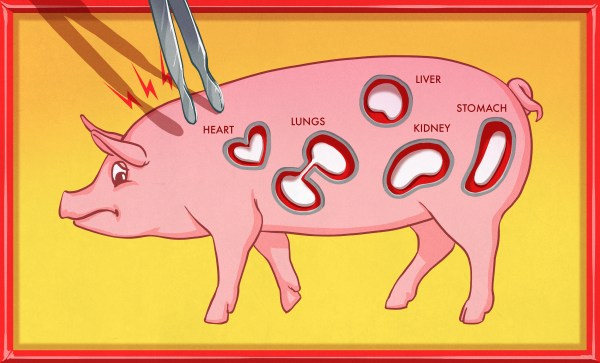Every day in the US, seventeen people die because they couldn’t get a organ transplant in time. An American biotech company called United Therapeutics is looking to pick up the lifesaving slack by producing a line of genetically-modified pigs for the purpose of harvesting their organs, among other therapeutic uses. United Therapeutics’ pig-farming subsidiary Revivicor is a spin-off of PPL Therapeutics, the company that gave us Dolly the cloned sheep back in 1996. They intend to start transplanting pig organs into humans as early as this year.

Although it sounds like science fiction, the idea of transplanting animal cells, organs, and tissue into humans has been around for over a hundred years. The main problem with xenotransplantation is that it usually triggers severe immune system reactions in the recipient’s body. In one of the more noteworthy cases, a baby girl received a baboon heart in 1984, but died a few weeks later because her body rejected the organ.
The leading cause of xenotransplant rejection is a sugar called alpha-gal. This sugar appears on the cell surfaces of all non-primate mammals. Alpha-gal is problematic for other reasons, too: a condition called alpha-gal syndrome usually begins when a Lone Star tick bites a person and transmits alpha-gal cells from the blood of animals they have bitten. From that point on, the person will experience an allergic reaction when eating red meat such as beef, pork, and lamb.
Continue reading “Swine Of The Times: Pig-to-Human Organ Transplants On Track For 2021”











